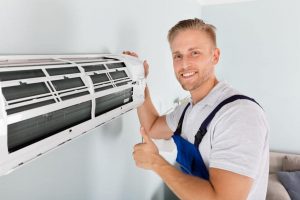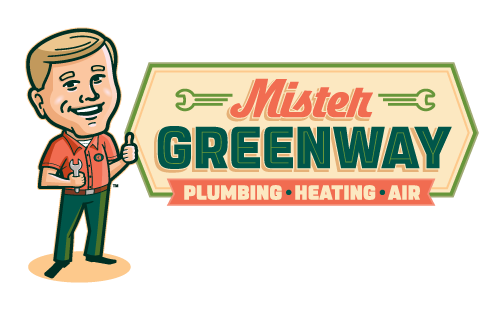 Have you ever felt the frustration of your AC compressor shutting off after just a few minutes? It’s a common problem known as short cycling, and it can be quite frustrating. Addressing this issue promptly is important to maintaining the efficiency and longevity of your air conditioning system.
Have you ever felt the frustration of your AC compressor shutting off after just a few minutes? It’s a common problem known as short cycling, and it can be quite frustrating. Addressing this issue promptly is important to maintaining the efficiency and longevity of your air conditioning system.
While some solutions can be DIY, it’s always wise to seek professional help for an accurate diagnosis. This article will guide you through the common causes of short cycling and what you can do about it.
Key Takeaways
- Short cycling refers to the AC compressor running for less than 10 minutes.
- It often indicates underlying issues such as refrigerant problems, electrical faults, or thermostat malfunctions.
- Addressing short cycling promptly can save energy and extend the lifespan of your AC system.
- DIY solutions include replacing air filters and cleaning condenser coils.
- Professional help is recommended for complex electrical problems and refrigerant leaks.
Normal Compressor Cycle
Under normal conditions, an AC compressor runs for about 15 minutes in a typical cooling cycle. The thermostat initiates the cycle by sending a signal to the compressor, which then circulates refrigerant through the system.
This process removes heat from your home and expels it outside. When everything is working correctly, the system maintains a consistent indoor temperature.
Understanding Short Cycling
Short cycling happens when the compressor runs for less than 10 minutes before shutting off. This pattern suggests underlying issues that need attention. It’s common in oversized air conditioners and can significantly impact energy efficiency and the lifespan of your unit.
When short cycling occurs, your AC struggles to maintain the desired temperature, leading to higher energy bills and increased wear and tear.
Why Your AC Compressor Is Short Cycling
Let’s explore the common reasons behind this frustrating issue…
Refrigerant Issues
One of the main culprits of short cycling is low refrigerant levels. This can happen due to leaks or an insufficient initial charge. When the refrigerant is low, the compressor has to work harder, leading to short cycling and reduced system performance.
Too much refrigerant can also cause problems. An overcharged system can create excessive pressure, making the compressor shut off prematurely. Handling refrigerant should always be left to professionals to avoid complications.
Electrical Problems
The capacitor helps start the compressor. If it’s defective, the compressor might struggle to start or shut off quickly. Symptoms of a bad capacitor include clicking sounds or the compressor failing to start.
Loose or damaged wiring can disrupt the electrical flow needed for the compressor to function. It’s vital to check and secure all electrical connections to prevent short cycling.
Thermal Overload
Compressors have thermal overload protection to prevent damage from overheating. Common causes of overheating include poor ventilation, malfunctioning fans, and issues with condenser coils. Overheating triggers the protection feature, causing the compressor to shut off.
Faulty Thermostat
Ensure your thermostat is set correctly. A malfunctioning thermostat can cause the compressor to behave erratically, leading to short cycling.
Clogged Air Filter
A dirty or clogged air filter restricts airflow, causing the system to overheat and the compressor to shut off. Regular maintenance of air filters is essential to avoid this issue.
Condenser Issues
When condenser coils are dirty or blocked, heat dissipation is reduced. This can cause the compressor to overheat and shut off. Keeping these coils clean is crucial for efficient operation.
Contactor Problems
The contactor controls the electricity flow to the compressor. A defective contactor can cause intermittent power, leading to short cycling. Identifying and fixing contactor issues can resolve this problem.
System Size Mismatch
An AC unit that’s too large for your space can cool the area too quickly, causing the system to shut off prematurely. Proper sizing of your AC unit is important for efficient operation.
DIY Solutions for AC Compressor Shut-Off
While some issues require professional attention, here are a few DIY solutions you can try.
 Replacing Air Filters
Replacing Air Filters
Regularly replacing air filters is essential. Clogged filters restrict airflow, causing the system to overheat. Here’s a step-by-step guide:
- Turn off the AC unit.
- Locate the air filter, usually behind a vent or inside the unit.
- Remove the dirty air filter and dispose of it.
- Insert the new filter, following the arrows for airflow direction.
- Turn the AC unit back on.
Inspecting and Cleaning Condenser Coils
Clean condenser coils ensure efficient operation. Follow these steps:
- Turn off the power to the AC unit.
- Locate the condenser unit outside.
- Remove any debris around the unit.
- Use a coil cleaner spray to clean the coils.
- Rinse with water and allow to dry before turning the power back on.
Troubleshooting Thermostat Issues
A malfunctioning thermostat can cause short cycling. Here’s how to troubleshoot:
- Check the thermostat settings and set it to the desired temperature.
- Replace the batteries if needed.
- Ensure the thermostat is level and not exposed to direct sunlight.
- If problems persist, consider replacing the thermostat.
When to Call a Professional HVAC Technician
Some issues are best left to professionals. Here’s when you should seek expert help.
Complex Electrical Problems
Handling electrical problems can be risky. A professional technician has the expertise to diagnose and fix electrical issues safely.
Refrigerant Leak Repairs
Refrigerant leaks should always be handled by professionals. Improper handling can be hazardous and worsen the problem.
AC System Evaluation
Routine professional evaluations can detect potential issues early, ensuring efficient operation and prolonging the lifespan of your system.
Preventative Maintenance Tips for AC Systems
Preventative maintenance is key to avoiding short cycling. Here are some tips:
Regular Filter Changes
Change air filters regularly. Choose the right filter with a suitable MERV rating for your system.
Annual Tune-ups
Schedule professional annual inspection. Early detection of issues can save you from costly repairs.
Proper System Sizing
Ensure your AC system is correctly sized for your home. Proper sizing enhances efficiency and extends the unit’s lifespan.
Mister Greenway Nashville, TN Provides AC Services
 Regular maintenance checks are vital for your AC system’s health. Scheduling professional inspections can help maintain efficiency and longevity. Mister Greenway in Nashville offers AC maintenance, repairs, and installation services. They are your go-to experts for keeping your system in top shape and giving you peace of mind.
Regular maintenance checks are vital for your AC system’s health. Scheduling professional inspections can help maintain efficiency and longevity. Mister Greenway in Nashville offers AC maintenance, repairs, and installation services. They are your go-to experts for keeping your system in top shape and giving you peace of mind.
Final Thoughts
Short cycling is a common but fixable issue. By understanding the causes and solutions, you can keep your AC system running smoothly. If you’re in Nashville, Mister Greenway is ready to assist with all your AC needs.
FAQs
Can I fix short cycling myself?
Yes, you can try DIY solutions like replacing air filters or cleaning condenser coils. However, complex issues require professional help.
How often should I replace my AC filter?
Replace your AC filter every 1-3 months, depending on usage and filter type.
What should I do if my AC is still short cycling after replacing the filter?
If replacing the filter doesn’t resolve the issue, check the thermostat settings and clean the condenser coils. If the problem persists, call a professional technician.
Is short cycling harmful to my AC system?
Yes, short cycling increases wear and tear, reduces efficiency, and can lead to more significant issues over time.
How can I prevent short cycling?
Regular maintenance, including filter changes and annual tune-ups, can prevent short cycling.
What causes a thermostat to malfunction?
Malfunctions can result from incorrect settings, dead batteries, or exposure to direct sunlight.
Can I clean condenser coils myself?Yes, you can clean the coils yourself using a coil cleaner spray and water. However, ensure the power is off before starting.
Why is professional refrigerant handling important?
Improper handling of refrigerants can be hazardous and may worsen leaks or damage the system.
How can I tell if my AC unit is the right size for my home?
A professional evaluation can determine if your AC unit is correctly sized, ensuring efficient operation.
